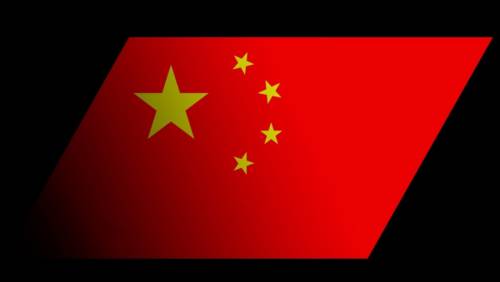Global Issues
China’s repression of Uighur culture and religion -By Labaran Yusuf

As the world signs up for Chinese President Xi Jinping’s signature economic policies: the One Belt, One Road initiative – which plan involves the vast building of railway and road infrastructure to link China to Europe and the Middle East through the ancient “Silk Road” trading routes. Many have turned a blind eye to the suffering of the people on whose land the One Belt, One Road initiative depends on.
For the past months, the United Nations (UN), human rights organizations including Human Rights Watch (HRW); news outlets like the BBC, Associated Press (AP), Reuters and Aljazeera; and other China-related researchers have shed light on the continued persecution of the Uighurs and other Muslim minorities in China’s far northwestern Xinjiang region – historically East Turkestan.
Reports indicate more than a million members of this little-known Muslim minority have been rounded up and locked up in so-called “re-education” camps. In these mass internment camps, Uighur people are not only forced to renounce their culture and religion but are also subjected to political indoctrination and abuse, according to the UN. Despite previously denying the existence of such camps, the communist government in Beijing in the face of international pressure now describes them as “vocational training centers” aimed at countering the spread of what it calls “the three evils of separatism, terrorism and religious extremism”.

The Uighurs (also spelled Uyghurs and pronounced wee-gurs) are a group of mostly-Muslim, Turkic-speaking people that according to many historians and Uighur rights groups have been living in the Central Asian region of East Turkestan as early as 300 B.C. They embraced Islam in the 9th century during the Karahanid Kingdom. The Kingdom’s capital Kashgar quickly became a major learning center of Islam. Situated on the ‘Silk Road’ or the network of trade routes that connected the Eastern and Western parts of the world – art, sciences, and literature flourished in the unique culture and civilization nurtured by Islamic religious institutions.
The Uighurs in East Turkestan enjoyed relative independence and prosperity until the imperial Chinese Manchu Empire invaded it in the 18th century. The Manchu Empire annexed and renamed the region to “Xinjiang” (meaning ‘new territory’). During this period, Uighur power, stature, and culture went into a steep decline. The Manchu were defeated by Chinese Nationalists in 1911. Twice, in 1933 and 1944, the Uighurs after numerous uprisings succeeded in setting up the independent East Turkestan Republic. These were short-lived after the political and military intervention of the Soviet Union.
By 1949, Chinese Communists defeated the Nationalists to form the People’s Republic of China after the civil war. During this period, the situation of the Uighurs went from bad to worse. Despite the initial promise of self-rule and even independence for non-Chinese people (i.e Uighurs and others), the Chinese Communist Party (CPP) reneged on its promise and absorbed Xinjiang to establish the “Xinjiang Uighur Autonomous Region” in 1955.
Following the launching of the Cultural Revolution in 1966 by China’s Communist leader Mao Zedong, the Uighur people were forced to give up their cultural and religious identities – since religion is seen as a threat by the atheist regime in Beijing. Mosques were defaced and the Qur’an destroyed. Uighurs accused of “anti-socialist trends” by practicing their religion were disappeared, tortured and killed. Some Uighurs were detained and forced to denounce Islam. Others were subjected to compulsory unpaid labor.
The collapse of the Soviet Union in 1991 coupled with the emergence of independence movements throughout Central Asian countries that were once contained in the Soviet Union revived the Uighur dream of an independent republic. This insurrection was brutally suppressed by Beijing. According to HRW, the CCP ever since has embarked on a “crushing campaign of religious repression” in Xinjiang.
Consequently, the CCP government’s pro-settler policies have seen the population of Han Chinese – the majority ethnic group in China – grow in Xinjiang from six percent in 1949 to about 40 percent recently. This has led to institutional discrimination and economic disparity as the Mandarin-speaking Han Chinese migrants are being given preference in terms of employment and other services over indigenous Uighurs. As a result, riots broke out in Urumqi, Xinjiang’s capital, in 2009. An estimated 200 Uighur and Han were killed in the violence. Similar sporadic incidents ensued over the following years, paving the way for the CCP to launch its so-called “Strike Hard Campaign” for combating the “three evils”.
From jailing people trying to make the Islamic Hajj pilgrimage to banning of the Ramadan fast and religious education for young people in Mosques; from outlawing Muslim sounding names, beards, and clothing to cancellation of public Arabic texts and classes along with silencing of the Islamic call to prayer – China is using an array of bizarre measures to eradicate any culture of the 11 million Uighurs which it considers “mental illness”.
As Gulnaz Uighur, a London-based Uighur activist rightly notes, “China’s communist government has redefined extremism: it now refers to anyone who doesn’t eat pork, fasts during Ramadan, wears an ‘abnormal’ beard or veil, refuses to watch state TV, or abstains from alcohol and tobacco”.
At the same time, mass surveillance, the broad collection of DNA samples and iris scans in order to monitor the Uighurs is commonplace in Xinjiang, leaving many in constant fear of arrest. Those arrested are sent to “re-education” camps, for what China says is “Transformation Through Education”. Though information out of Xinjiang is tightly control by Beijing, testimonies by former detainees and satellite imagery coupled with investigative reports by media outlets indicate more than a million Uighurs are detained in these internment camps. They are told to renounce Islam and embrace the CPP and the official ideology of the state: Atheism. Many experts believe the appointment of Chen Quanguo as Party Secretary to Xinjiang in 2016 explains why the region rapidly becomes the world’s leading police state. Chen was known for overseeing the notorious ethnic crackdown in neighboring Tibet.
Former detainees that spoke to the media described being forced to recite praises for the CPP and its leader Xi Jinping; memorize Chinese laws and Communist Party policies; engage in self-criticism sessions; report on fellow inmates, relatives and neighbors; as well as sing the national anthem and other Red propaganda songs like “Without the Communist Party, there is no New China”. Those that stubbornly defy this brainwashing campaign face psychological and physical abuse including torture, sleep, and food deprivation, waterboarding, and possible death.
While adults languish in internment camps, China is putting Uighur children in state-run “orphanages” or “bilingual boarding schools” even if their parents are alive, according to reports. They are taught the culture of their parents is “backward”, and are forced to speak Mandarin and practice state religion – atheism. Some are even told to spy and report the activities of their parents. Human rights activists and experts say such assimilationist policies may enable China to shape the identity of an entire generation of Uighurs.
But more alarmingly, Uighurs face more pressure through “Becoming A Family” policy the government enforced in Xinjiang, according to HRW. It involves government agents and officials or “relatives” as the government calls them coming to stay in Uighur homes to spy and collect information about every aspect of the families’ lives including their political views, what language they use, how often they worship, along with trying to persuade people to support the CCP.
Sadly, with the absence of a unified response – since more nations including Muslim-majority ones are becoming economically dependent on China – the world continues to watch silently the “re-education” of the Uighurs (or better, the transformation of Muslims into communist atheists).
As forcing someone to renounce his culture and religion is akin to cultural genocide. It’s time the world stands up to protect the Uighurs before this “re-education” madness is copied by other repressive regimes around the world to target other minority groups they deem unwanted.
Labaran Yusuf is freelance writer and researcher based in Jos, Plateau State.


















